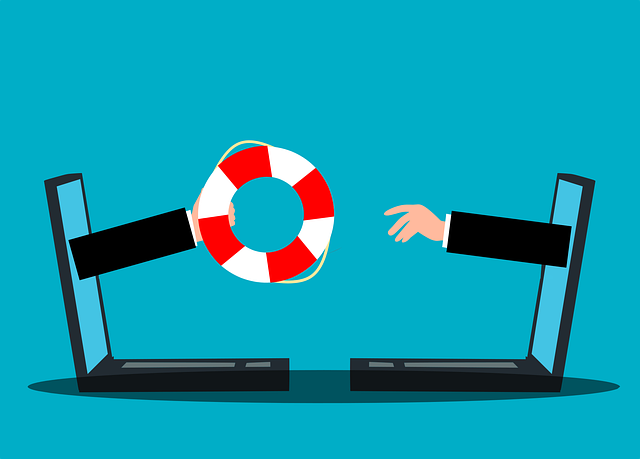In the competitive e-commerce sector, "What Does Business Insurance Cover?" is a pivotal question for online retailers aiming for success and stability. Comprehensive business insurance protects against digital and physical risks, including data breaches, cyber threats, customer disputes, property damage, and legal issues. Key coverage areas include general liability, professional liability, business interruption, property insurance, workers' compensation, and specialized cyber insurance. Understanding these protections is essential for e-commerce businesses to safeguard their operations, assets, and customers in a rapidly changing digital landscape.
In today’s digital landscape, e-commerce has become a bustling testament to business innovation. However, navigating this realm brings unique risks, from cyber threats to customer claims. Understanding what does business insurance cover is crucial for online retailers. This comprehensive guide delves into the various types of business insurance designed specifically for e-commerce, offering a detailed overview of property coverage, liability protection, cyber insurance, and more, to ensure your digital assets and operations thrive without interruption.
Understanding E-commerce Risks: A Comprehensive Overview

In the dynamic landscape of e-commerce, businesses face a unique set of risks and challenges that demand careful consideration. Understanding what does business insurance cover is essential for any online retailer looking to mitigate potential losses. From data breaches and cybersecurity threats to damaged goods and customer disputes, the digital realm presents unforeseen perils. For instance, a data breach can lead to significant financial losses due to stolen customer information, while product liability claims can arise from faulty or harmful merchandise.
Comprehensive business insurance for e-commerce enterprises is designed to address these risks head-on. It offers protection against various scenarios, including but not limited to, legal responsibilities, property damage, and income loss stemming from unexpected events. By insuring against these potential pitfalls, businesses can safeguard their financial health, ensuring stability and continuity in an ever-evolving digital market.
Types of Business Insurance for Online Retailers

Online retailers face unique risks and challenges that require tailored insurance coverage. Understanding what business insurance covers is essential for e-commerce businesses to mitigate potential losses. Generally, business insurance policies are designed to protect against financial loss resulting from events such as property damage, liability claims, and income interruption.
For online retailers, key types of business insurance include general liability insurance, which covers claims of bodily injury or property damage to customers; professional liability insurance, also known as errors and omissions coverage, which protects against lawsuits arising from negligence or mistakes in product descriptions, pricing, or shipping; and business interruption insurance, which provides financial protection if operations are disrupted due to covered events like natural disasters or cyberattacks. Additionally, many e-commerce businesses opt for property insurance to cover physical damage to their warehouses and inventory, as well as workers’ compensation insurance to protect employees from work-related injuries or illnesses.
Property Coverage: Protecting Your Digital Assets

Business insurance for e-commerce isn’t just about safeguarding your physical space; it’s equally vital to protect your digital assets, which are often your most valuable and vulnerable resources. Property coverage within business insurance plans specifically addresses this need by offering protection against cyber threats like data breaches, ransomware attacks, and other forms of digital damage. This includes not only financial losses but also legal costs associated with resolving such incidents.
In today’s digital era, where e-commerce operations are largely based on online platforms and databases, property coverage ensures that your website, customer information, and intellectual property remain secure. This protection extends to the restoration of data and systems in case of damage or loss, enabling your business to continue operating seamlessly without significant interruptions.
Liability Protection: Navigating Customer Claims

E-commerce businesses face unique risks, especially when it comes to customer claims and liability issues. Understanding what business insurance covers is crucial in navigating these challenges. Comprehensive business insurance for e-commerce operations typically includes liability protection, which can shield your company from financial loss resulting from product liability, personal injury, or property damage claims.
When a customer alleges an injury or damage caused by your products or services, business insurance steps in to cover legal fees and potential damages awarded. This is especially vital as e-commerce transactions often occur remotely, making it challenging to verify product conditions and handle disputes. With the right coverage, businesses can manage these risks effectively, ensuring they remain competitive and protected in an ever-evolving digital marketplace.
Employee-Related Risks and Workers' Compensation

Employee-related risks are an inherent part of any business, but they’re especially critical in e-commerce, where a single mistake by a staff member can lead to significant financial losses and legal issues. What does business insurance cover? Well, comprehensive coverage should include worker’s compensation, which is vital for protecting your company against costs associated with on-the-job injuries or illnesses. This includes medical expenses, lost wages, and even permanent disability payments.
By ensuring proper worker’s compensation coverage, e-commerce businesses can safeguard themselves from potential financial ruin in the event of employee accidents. Additionally, this type of insurance demonstrates a commitment to staff well-being, fostering a positive work environment and potentially improving employee morale and retention.
Cyber Insurance: Shielding Against Digital Threats

Cyber threats are an increasingly significant risk for e-commerce businesses, with cybercriminals constantly developing new ways to exploit vulnerabilities. This is where Cyber Insurance steps in as a vital component of comprehensive business insurance for online retailers. It provides financial protection against various cyber risks, including data breaches, ransomware attacks, and phishing scams.
Cyber Insurance covers the costs associated with incident response, legal fees, and notification expenses when a data breach occurs. It also assists in restoring operations and data after an attack, ensuring businesses can continue trading without significant disruption. Understanding what business insurance covers, especially in terms of cyber risks, is crucial for e-commerce companies aiming to protect their digital assets and maintain customer trust.
Business Interruption: Ensuring Continuous Operations

Business interruption insurance is a crucial component of any e-commerce business’s risk management strategy. This type of coverage ensures that your online enterprise can continue operating seamlessly during unforeseen events, such as natural disasters, equipment failures, or cyberattacks, which could otherwise halt sales and revenue streams. In today’s digital landscape, where e-commerce is a vital part of many businesses, maintaining continuous operations is essential to stay competitive.
When considering what does business insurance cover, this specific policy provides financial protection to help replace lost income and operational costs during periods of disruption. It enables businesses to meet their financial obligations, maintain employee salaries, and continue serving customers without significant delays. This coverage ensures that your e-commerce venture can bounce back quickly from disruptions, fostering a resilient and sustainable business model.
Professional Services: Insuring Expertise and Advice

Professional Services insurance is a crucial component of business protection for e-commerce ventures, as it provides coverage for the expertise and advice offered by professionals in your organization. This type of insurance safeguards against potential liabilities arising from errors or omissions made during the course of providing professional services. Whether it’s legal advice, financial consulting, or marketing strategies, this coverage ensures that your business is protected should any issues or lawsuits result from these services.
When considering What Does Business Insurance Cover? for e-commerce businesses offering professional services, it’s essential to understand the scope of protection. This includes not only direct financial losses but also legal fees, compensation for harm caused, and any other expenses incurred due to professional negligence. By having this insurance in place, you can rest assured that your business is prepared to navigate potential challenges, ensuring continuity and stability in an ever-evolving digital marketplace.
Customizing Your E-commerce Insurance Policy

When it comes to e-commerce, your business insurance policy should be as unique as your online store. Customizing your policy means ensuring that what matters most to your business is adequately covered. E-commerce operations involve a range of risks—from data breaches and cyberattacks to physical damage or loss during shipping—that traditional brick-and-mortar businesses may not face. Therefore, your insurance should be tailored to address these specific concerns.
Understanding what does business insurance cover in the e-commerce context is key. This includes protection against online fraud, liability for customer returns and exchanges, intellectual property theft, and even the cost of business interruption if your website faces significant downtime due to a cyberattack or technical glitch. By customizing your policy, you can create a safety net that supports your e-commerce venture in its unique and dynamic environment.
